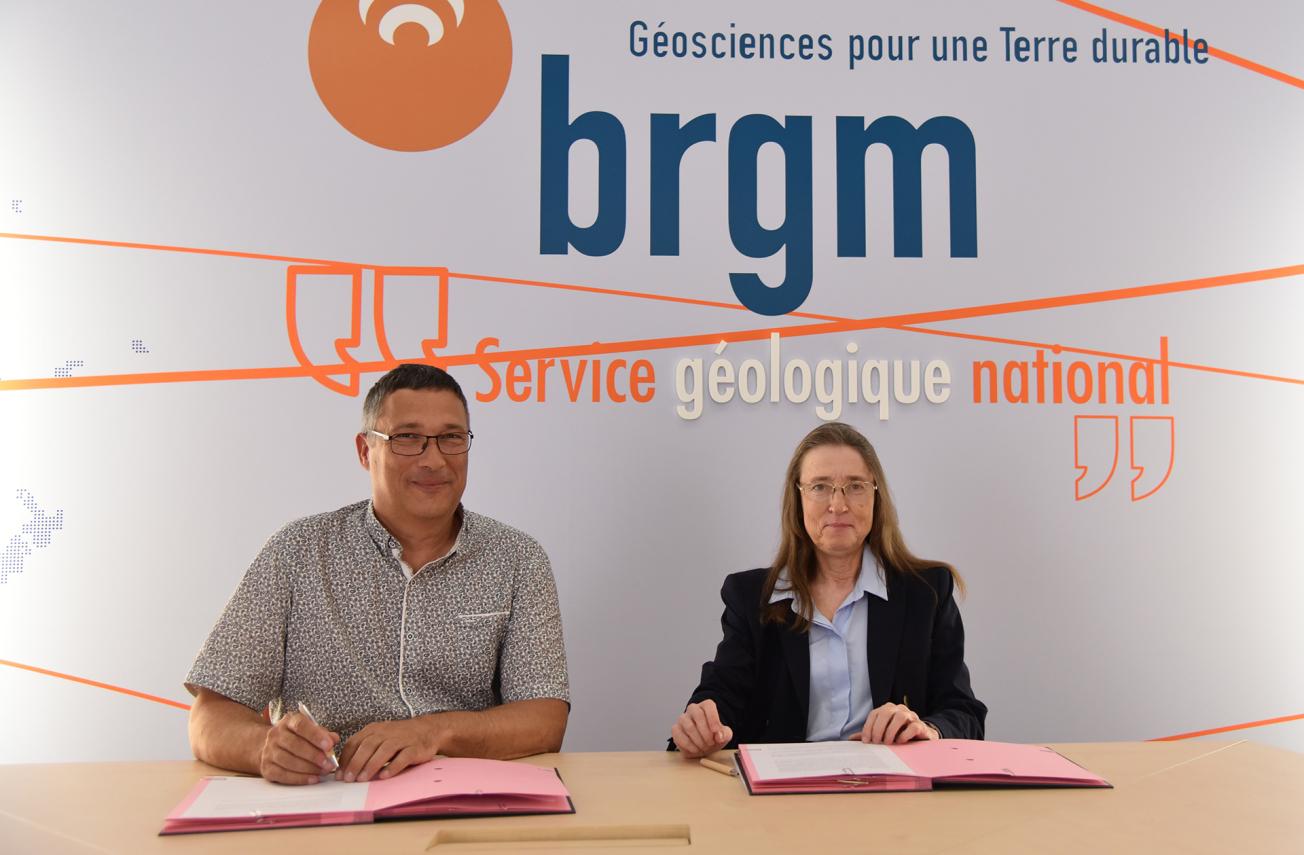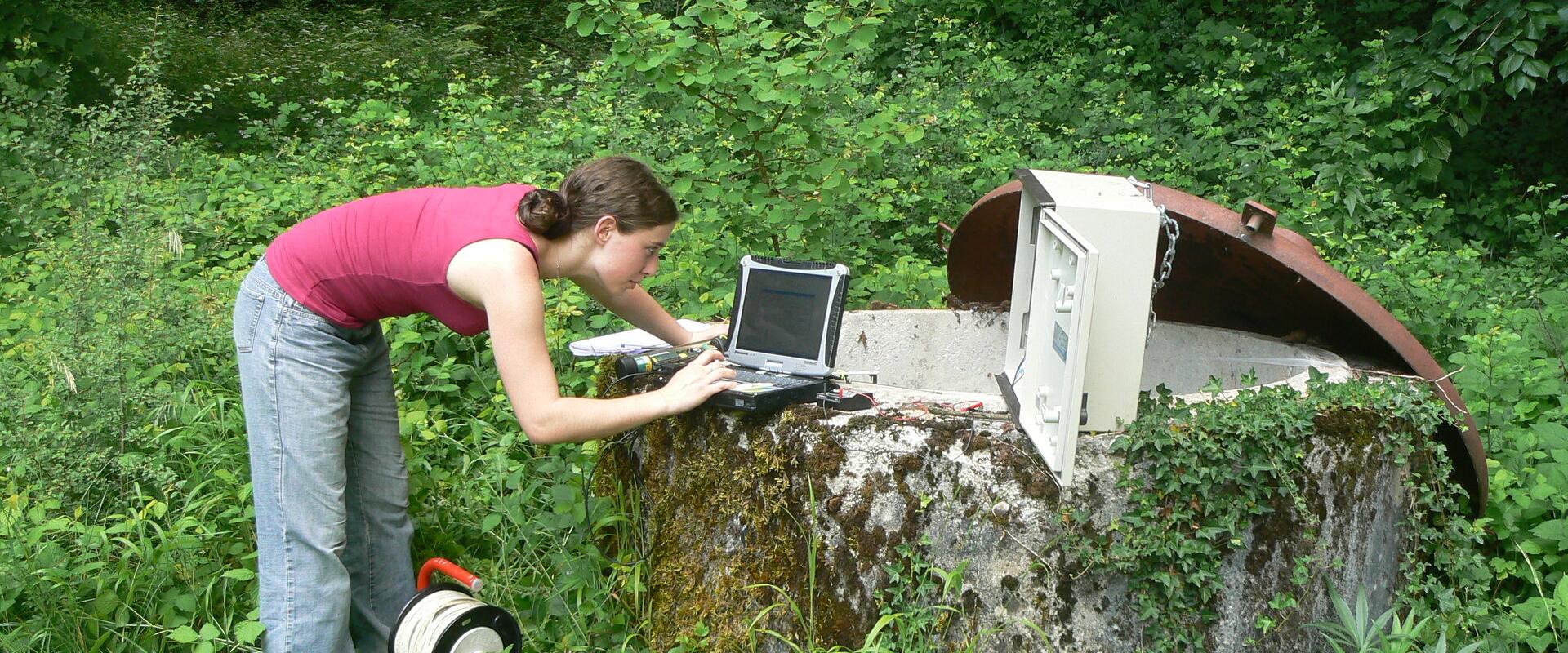
Olivier Le Gall, Chairman of the Scientific Integrity Council, and Michèle Rousseau, President and Chief Executive Officer of BRGM, at the signing of the National Charter of Ethics for Research Professions on 16 July 2018.
© BRGM - Frédéric Moreira
On Monday 16 July 2018, Michèle Rousseau, Chair and Executive Director of the BRGM, signed the national charter on professional ethics in research in the presence of Olivier Le Gall, Chair of the Committee for Scientific Integrity of the HCERES (High Council for Assessing Research and Higher Education).
The BRGM code of ethics and its implementation
The signature of the charter concludes the work on professional ethics undertaken since 2014 at the BRGM. On completion of the programme's deployment (ethics advisor, external ethics committee, case files), the BRGM issued its Code of Ethics in 2017, stressing the 5 fundamental principles underlying the culture of integrity and responsibility that all BRGM employees abide by, both individually and collectively:
- respect through integrity, loyalty and probity,
- cooperation through dialogue, attentiveness to others and mutual assistance,
- competence through reliability, professionalism and thoroughness,
- transparency through communication, disclosure of interests and freedom of expression,
- objectiveness through impartiality, independence and neutrality.
By signing the charter today, the BRGM is consolidating its relationship of trust with society.
The national charter on professional ethics in research
The national charter on professional ethics in research, published in 2015, has been signed by 34 research establishments. In doing so, they undertake, in the conduct of their scientific missions, to abide by seven principles based on important international texts in the field of professional ethics. These principles are:
- compliance with legislative and regulatory provisions,
- reliability in conducting research work,
- communication
- responsibility in collective work,
- impartiality and independence of assessments and expert studies
- collaborative work and multiple roles
- training
For the BRGM, these seven principles supplement and specify the undertakings set out in its Code of Ethics.
The HCERES committee on scientific integrity
The HCERES committee on scientific integrity (High Council for assessments in research and higher education) supervises and guides the work of the French Office for scientific integrity (OFIS), which is responsible, within the HCERES, for expert studies, oversight and facilitation of the national policy for scientific integrity.
To coincide with the signature by the BRGM of the national charter on professional ethics in research, Olivier Le Gall, Chair of the HCERES committee on scientific integrity, gave a talk on scientific integrity followed by a debate in the BRGM's premises.







